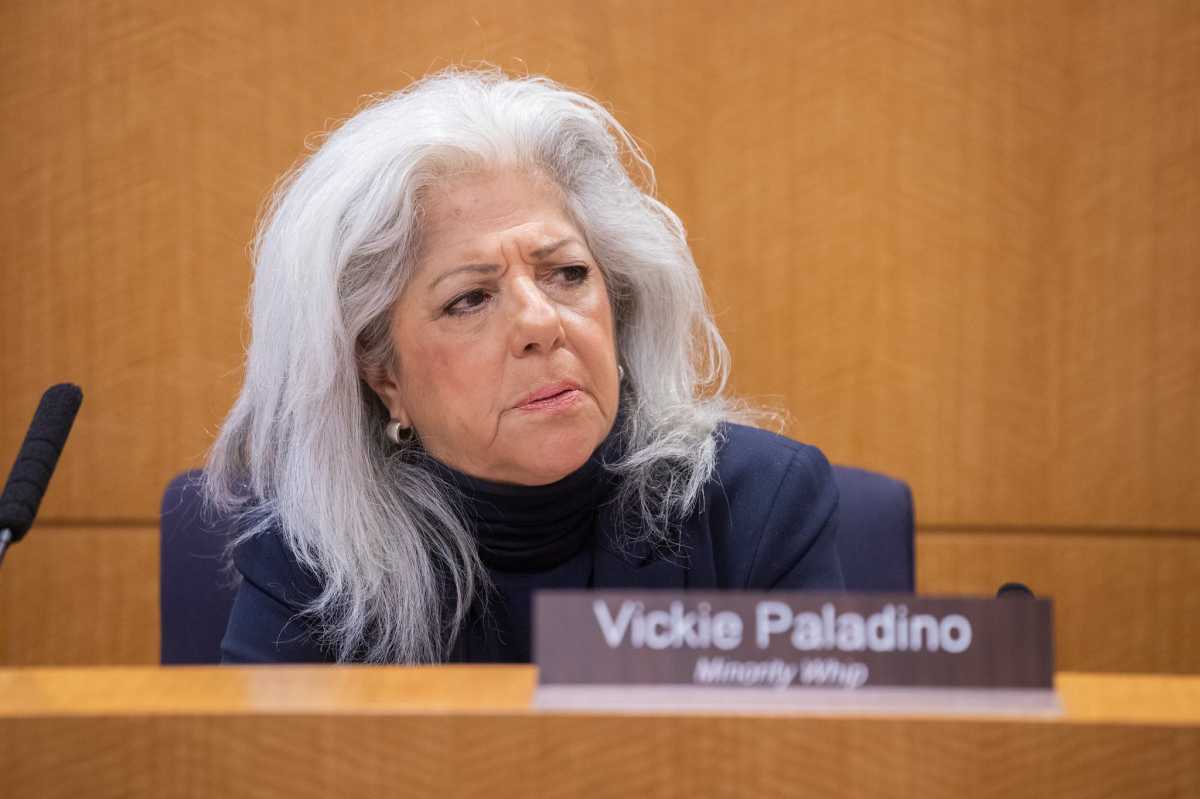By Mark Hallum
Elected officials may have more concrete fodder in their fight against airplane noise above northeast Queens with the release of a Columbia University study that claims the raucous flight patterns could be shaving a year of life off residents below.
Anxiety, depression and other stress-related conditions can affect the overall health of people living beneath the controversial flight patterns that the Federal Aviation Administration launched unannounced in 2012, according to the study, which will be expanded with the support of elected officials such as state Sen. Tony Avella (D-Bayside).
“Not only have residents been bombarded with noise for years, this study confirms that their health may have been impacted, too,” Avella said. “With completion of this study, we can begin to see what the actual public health effects are due to these flight patterns. In fact, the study shows that people could lose up to one year out of their lifespan due to these negative effects. This is shocking and requires further study to reveal any additional impacts on human life.”
Two main departures routes, the TNNIS Climb and the Whitestone Climb, bring high levels of noise to the borough. The two northeast Queens climbs accounted for just under half the departures from LaGuardia in 2014.
State Assemblyman Edward Braunstein (D-Bayside) stood with Avella and other advocates for flight pattern reform at Little Bay Park Tuesday, claiming additional state funds will be dedicated to the study by Columbia’s Mailman School of Public Health.
“This study confirms what we have believed all along, that year-round use of the TNNIS climb has a detrimental impact on the health of residents who live within its path. The study also shows that the economic benefits generated through the use of this new NextGen departure procedure are not as significant as we have been led to believe and do not outweigh the costs associated with the negative health effects it has created,” Braunstein said.
Peter Muenning, a professor at the Mailman School of Public Health, led the study titled “The Trade-Off Between Optimizing Flight Patterns and Human Health: A Case Study of Aircraft Noise In Queens, NY, USA.”
The school’s measurement of noise under the flight patterns concluded that although the routes are better for the environment in terms of emissions and have economic benefits, the cost does not outweigh the health detriments on the ground which increase the need for health screenings and mammographies.
“The FAA places a very high value on lives inside airplanes, but places a low value on those inside their homes,” Muenning said. “Reducing airplane noise would prevent more deaths than screening for breast or colon cancer, and it would do so at a lower cost.”
U.S. Reps. Grace Meng (D-Flushing) and Tom Suozzi (D-Little Neck) have both joined the fight against airplane noise with the latter serving as co-chair of the Congressional Quiet Skies Caucus.
“The results of this study confirms that excessive aircraft noise over Queens negatively impacts the health of borough residents,” Meng said. “I join my colleagues in seeking an expanded study, and legislation I am sponsoring, the Airplane Noise Research and Mitigation Act of 2018, would help increase noise-related studies by FAA Centers for Excellence. We must do all we can to combat the excessive airplane noise that continues to take a toll on the health and quality of life of Queens residents.”
Janet McEneaney, president of Queens Quiet Skies, established her organization as a neighborhood effort to pressure the FAA to respond to the needs of residents who suffer from airplane noise pollution.
“It seems that even ‘economic engines’ come with a cost,” McEneaney said. “The cost of reckless aviation expansion in our metro New York area is too high, as the study demonstrates. The health of millions of New Yorkers has been endangered.”
Reach reporter Mark Hallum by e-mail at mhall

































